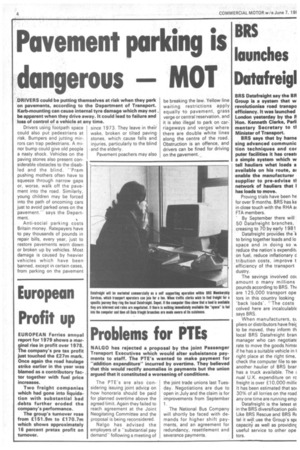Pavement parking is dangerous —up MOT
Page 6

If you've noticed an error in this article please click here to report it so we can fix it.
,DRIVERS could be putting themselves at risk when they park on pavements, according to the Department of Transport. Kerb-mounting can cause internal tyre damage which may not. be apparent when they drive away. It could lead to failure and • loss of control of a vehicle at any time.
Drivers using footpath space could also put pedestrians at risk. Bumpers and jutting mirrors can trap pedestrians. A minor bump could give old people a nasty shock. Vehicles on the paving stones also present considerable obstacles to the disabled and the blind. "Pram pushing mothers often have to squeeze through narrow gaps or, worse, walk off the pavement into the road. Similarly, young children may be forced into the path of oncoming cars just to avoid parked ones on the pavement.says the Department.
. Anti-social parking costs Britain money. Ratepayers have to pay thousands of pounds in repair bills, every year, just to restore pavements worn down. or broken up by vehicles. Most damage is caused by heavier vehicles which have been banned, except in certain cases, from parking on the pavement since 1973. They leave in the wake, broken or tilted paving stones, which cause falls and injuries, particularly to the blind and the elderly.
Pavement poachers may also be breaking the law. Yellow line waiting restrictions apply equally 'to pavement, grass verge or central 'reservation, and it is also illegal to park on car-' riageways and verges where there are double white lines along the centre of the road. Obstruction is an offence, and drivers can be fined for driving on the pavement..




















































































































































